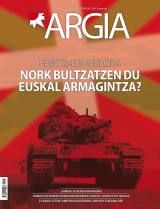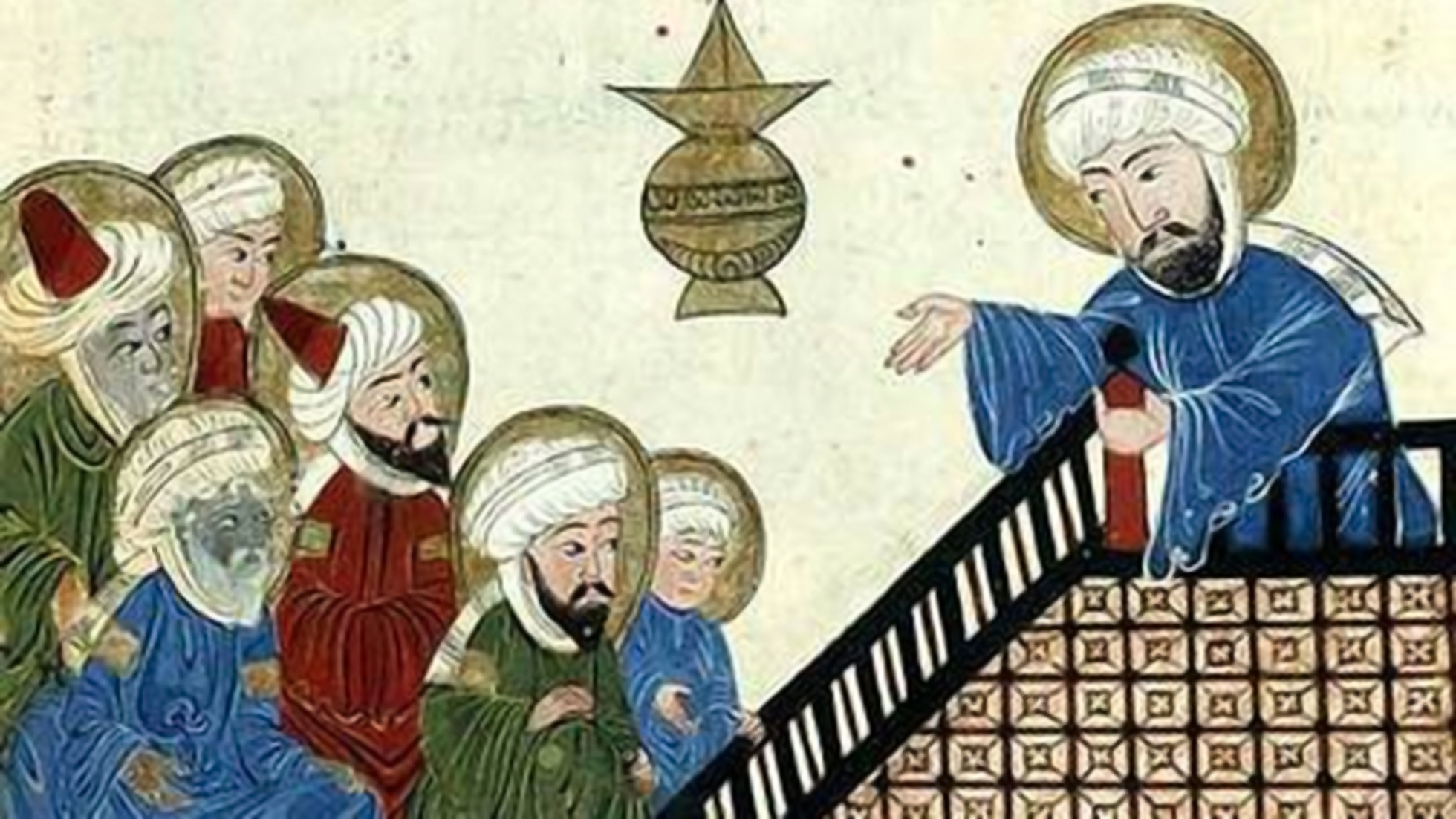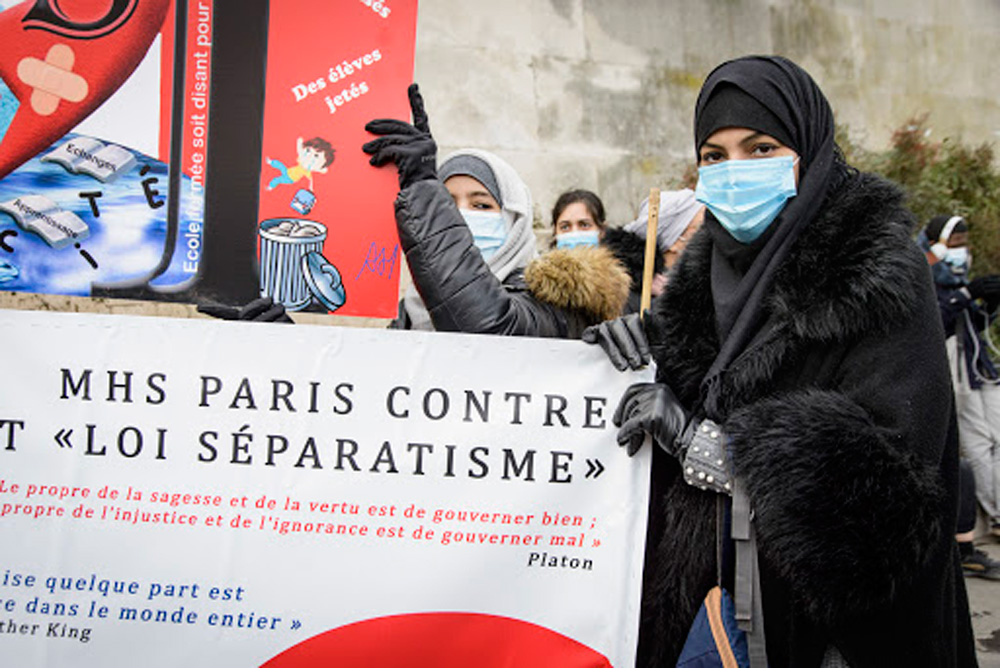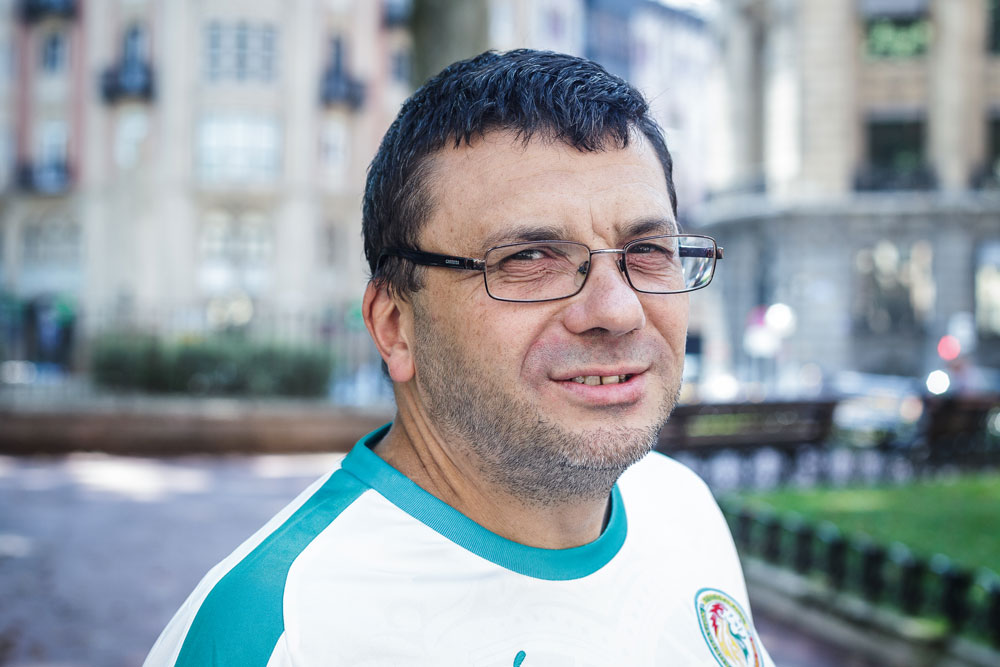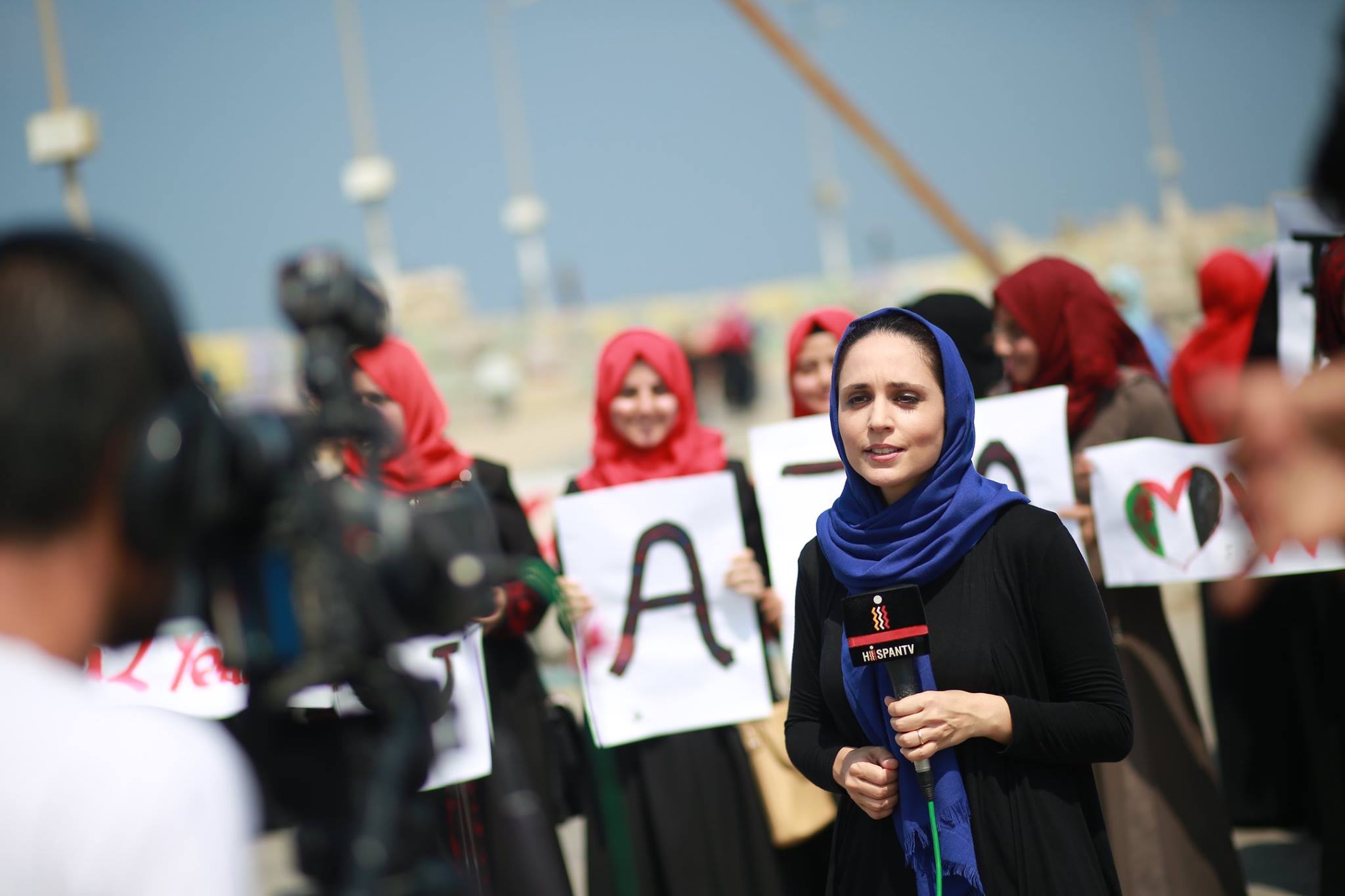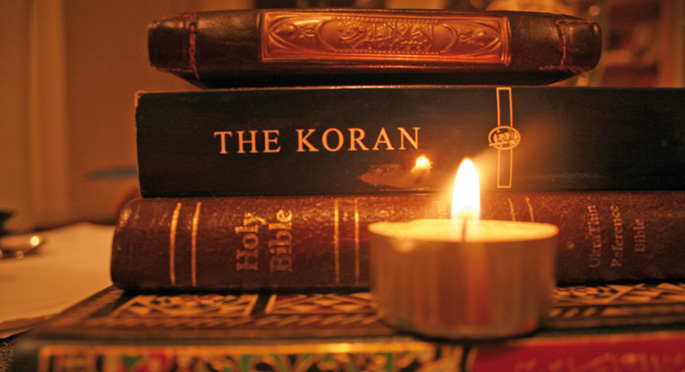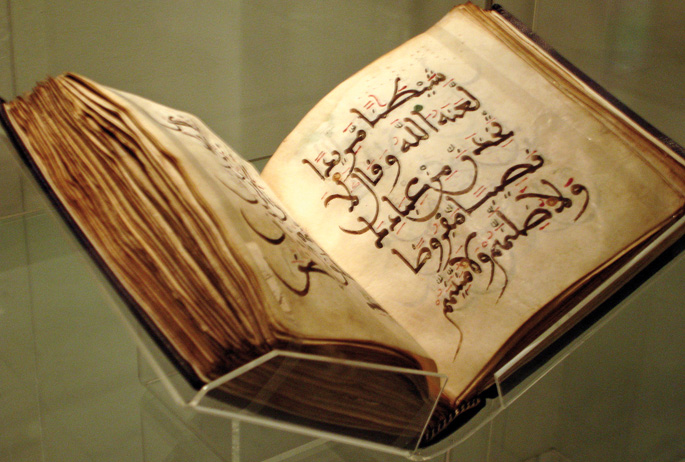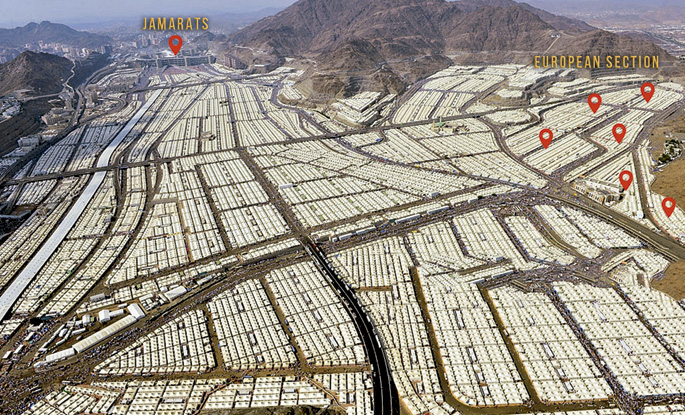"Europe makes war on Muslims"
- The Lebanese Army accused Imam Haytham Al-Said of "having contact" with extremist Islamist group Fatah Al-Islam during the 2007 war. To learn about the thinking of radical jihadism, we have had the opportunity to speak with him at the Nahr al Bared camp in Lebanon. In addition, following the Barcelona attacks, we have set out to learn about the activity of the Islamic communities of the Basque Country and to analyse the phenomenon of radicalisation with the help of UPV professor Ahmed Chaghouaoui.
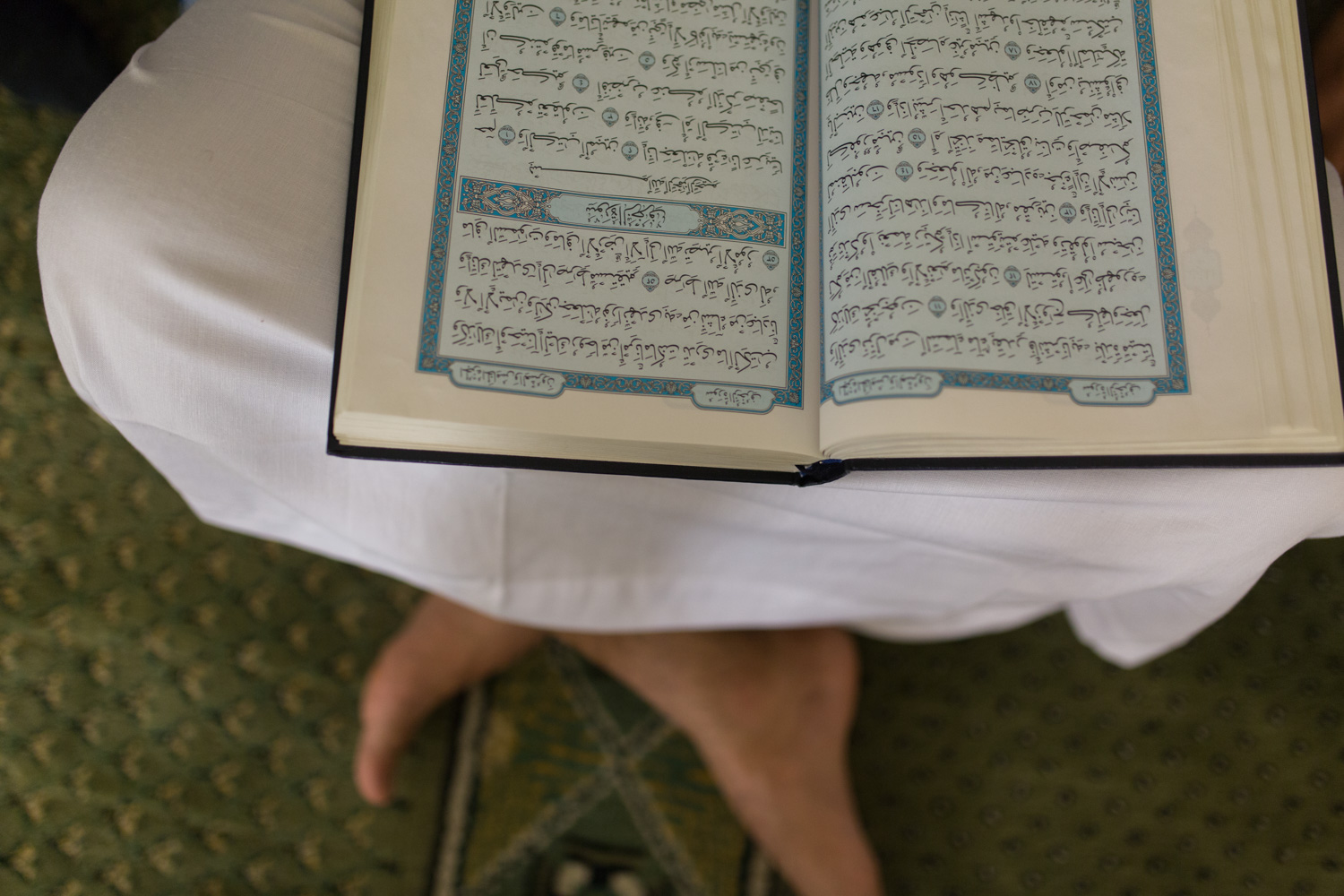
The radical Islamic ideology group Fatah Al-Islam (in Basque Conquest of Islam) had its strength in the Palestinian refugee camp Nahr al Bared in northern Lebanon. The group was made up of Islamist militants from all over the world who were heading for the Iraq war and heading to Iraq from Syria. To avoid this, Syria decided to close its borders and the jihadist group was "trapped" in Lebanon, where it was detained from the very beginning. Fatah Al-Islam attacked the Lebanese Army in May 2007 and thus began a four-month war that caused 396 deaths and hundreds of wounded.
Adel Abou Salem, one of the leaders of the Palestinian refugee camps, is well aware of the rise of jihadism in the youngest population. He is currently working in the Palestinian refugee camp Ain al-Hilweh, considered the stronghold of jihadists in Gaza. Ten years after the 2007 war. Fatah Al-Islam explained that “it went from a hundred militants to several hundred of them,” and that this was possible thanks to the help of “several religious leaders of the camp.”
Imam Haytham Al-Said is a well-known and referential person for the youth of the camp and recently returned from prayer has offered us a space to talk about the 2007 war. The Lebanese intelligence services placed him on the horizon for the imam's responsibility in the radicalization of the youth of the camp, for being the spiritual leader of the group. But he says that in the war they confined themselves to “protecting themselves.” Abu Salem, for his part, says that the imam made “an appeal to protect Fatah Al-Islam,” “as if they were Islamic brothers.” Thus, hundreds of young people in the camp fought for clean Islam and lost their lives in the conflict.

A clean Islam. That's what Al-Said and his rope mates defend. “No one has the right to change our religion, we do not accept it,” says the magnet. In Europe and Syria, the imam considers that "the ideas of Islamism have been corrupted" and that this is "by an attempt to change humanity". “After European Christians have killed or expelled Muslims, they now come here to wage war,” he enrages. Above all, the situation in Spain is the one that concerns the imam, as “mosques have become a tourist hub” and that, of course, “is a great insult”.
According to the thinking of radical Islamism, “we must fight against those who want to change the religious dogma”, accuses us of the Imam Al-Said. In his view, “although Muslims do not need ISIS, we should ask ourselves why groups of this kind have been created.”
Since its founding,
Islam, like all other religions, has undergone numerous changes at many levels. Ahmed Chaghouaoui, professor at the UPV/EHU, is an expert in the history of Islam. In his opinion, to explain the rise of jihadism, one has to analyze the step backwards that religion has taken. Thus, he has considered that today we have returned to a “religiosity centered on political power” and that some “maintain this false religiosity as if it were the only hope”.
Following the attacks in Barcelona, the Islamic community living in Europe is in the spotlight, especially the activity of mosques. Even more so if one looks at the role played by magnets such as Al-Said or Ripoll de Catalunya in the radicalization of young aggressors. Chaghououi says that radicalization is not a complicated process, “violent discourse will always succeed among young people, especially among young people with a low level of ignorance.” According to Chaghouaoui, in the process of radicalization “what is at stake is not a religious practice, but a language” and among the Muslims living in Western societies, the use of the terms ‘paradise’ or ‘unfair’ is unfortunately becoming commonplace”.
“These terms have no place in non-confessional societies,” he says and believes that work should be done in this regard: “As a full citizen, what does it matter to everyone else?”
As religious education begins in temples, Chaghouaoui believes that the work of the spiritual leader is “fundamental”, “especially in non-literate societies, as the imam is the spiritual guide and the principal knowledgeable of Islamic law.” In the case of Euskal Herria and Europe, moreover, considers that the sermon of the magnets should serve to “transmit the values of the local culture”: “In some cases contradictions arise between the local culture and what the imam says, which has caused uncomfortable situations, such as calls to commit a crime”.
Chaghouaoui opposes the presence of magnets in Europe “as they are considered unnecessary”. However, he believes that the present magnets should have academic training, master the local language and know the culture.” “This ignorance is the main problem. In Euskal Herria, for example, there is no requirement to be a magnet,” he stressed.
In general, the population of Arab or Muslim origin has experienced a great boom in the Basque Country, and in order to meet the needs of these new believers, eleven mosques or religious centers have been opened in seven countries. Chaghouaoui explained that these mosques, rather than religious function, “have a social function”, as they “offer the possibility of socializing” the newcomers, “although they were not believers” before coming here.
As for religious practice, the activities of mosques here “depend on the religious practice of the country of origin,” explains Chaghouaoui. In other words, they are organised by regions or countries. “For example,” says the expert, in certain mosques around Bilbao, only believers from certain areas of northern Morocco gather.”
Various regional religious practices have in some cases caused a division between believers. Rooting can be the mirror of it. The Maghreb Arabs and the Pakistanis, for example, have built a mosque in each of the urban population centres. The Arabs were the first to open their doors and to group in their beginnings the members of the two communities. One of them is Pakistani Jaffar, who, as he explained, stopped going to the mosque in the face of the difficulty of understanding the Arab dialect they spoke there. Not only that, but from one day to the next, it says that the environment started to get contaminated, that it started to see suspicious things. Among other things, “stays of three or four days of magnets coming from outside”. They may be the magnets sent by the Centre for Islamic Culture of Madrid, the largest mosque in Spain, known as the M-30 mosque.
The Ertzaintza considers that the activity of the Muslim community of Mondragon "has not given rise to any kind of suspicion". This has been confirmed by a member of the Autonomous Police who participated as a guest in the inauguration of the new mosque. The local activity is “normal and transparent”, but as it has been later known, the Ertzaintza asked a local journalist for the photos of the inauguration, “understanding that among the participants could be suspicious people”, that is, imams coming from Bilbao.
The expansion of radical dogma in “unfair Christian” countries Wahabism, the religious dogma
of the Kingdom of Saudi Arabia, was born at the end of the 18th century as a “conservative reform of religion”, but it has been since the 20th century, as explained by Professor Chaghouaoui, and paradoxically with the help of the “Western powers”.
“The goal of the Saudis is to promote the practice of religion around the world and to achieve religious and social hegemony among Muslims,” says Chaghouaoui. That is why groups such as Fatah Al-Islam, linked to Al Qaeda, regard Saudi Arabia as a “religious reference”, as Imam Haytham Al-Said himself has acknowledged, “because it is a country that defends Salafism and ‘clean Islam’.”
In the 1960s, coinciding with the appearance of oil reserves, the Riad regime tried to expand wahabism into the world. This enlargement comes as a result of the agreements signed with several Western countries. As an example, the Belgian monarchy gave Saudi Arabia a space to build a mosque, “in exchange for oil,” says Chaghouaoui. That is how the gigantic mosque in Brussels was born.
The same path followed the Spanish regime in the 1990s and the agreements with Saudi Arabia allowed the opening of the first Spanish mosque: The M-30 of Madrid “It should be noted that, in addition to the construction of the temple, the participation of magnets formed in the doctrine of Saudi Arabia is also part of the agreement, as the objective of Saudi Arabia is to export a reactionary and radical discourse to a ‘Christian disloyal’ country,” explains the expert.
For many years, Chaghouaoui has clarified that “there has been no control” in the M-30 mosque built by Saudi Arabia in Madrid, “until 11 March 2004”. “Think of the years that Saudi Arabia has been spreading its radical discourse.”
At the moment there is no trace of Saudi Arabia in the mosques of Euskal Herria, as most of the funding for the temples is “the money provided by the faithful,” explains Chaghououi. However, he warns that the Tabligh movement in Pakistan or some Islamist movements in Morocco are behind the financing of some mosques in the Basque Country: “If the money is not obtained, European leaders are going to Saudi Arabia or other radical countries to seek funding. There’s the risk of radicalization.”
This March begins Ramadan. Jamina asks the teacher for permission to put a poster on the course so her peers know.
The professor has denied him, "We are a secular center." At Christmas they painted and painted belenes in class; they sang to Santa Águeda; the days of Immaculate... [+]
Jihadismoa eta errefuxiatuen aferak izan zituen aztergai irailaren 5ean Ane Irazabal kazetari arrasatearrak Kulturaten egindako solasaldian. Areto nagusia txiki geratu zen. Errefuxiatuei buruz, Europaren blokeoaren aurrean "laguntza legala eta juridikoa" behar dutela... [+]
Muturreko praktika islamiko horrekin gizonak emakumea baliabide gabe utz zezakeen nahi zuenean. Herrialde hartako Gorte Nagusiak debekatu egin du orain.
Wassyla Tamzali abokatu aljeriarrak erlijioa kontrol modua dela salatzen du. Haren ustez, erlijioaren egitekoa ez da feminismoa eta ez da demokrazia. Feminismoa berriz, ez da moralaz ari, askatasunaz baizik.
Software engineer Tom Anderson has analyzed the Bible and the Quran through the Odin Text text analysis software developed by himself. Anderson wanted to know which of the two cases of violence and cruelty are most evident, and the result is that the Bible defeats the Quran in... [+]
Pamplona 1143. The English theologian, astronomer, translator and Arabic Robert of Ketton (Robertus Ketensis, in Latin) translated the Koran for the first time into Latin. Although we know very little about the early years of his life, it seems that Ketton studied in Paris. In... [+]
Irailaren 24an 1.100 erromes –4.000 zenbait iturriren arabera– hil ziren Saudi Arabian Meka eta Mina leku santuen arteko Jamaraat zubian. Hiru egunez hiru milioi sinestun musulman egonak ziren bertan otoitzean. Mahomaren aginduz sortutako turismo fededuna, negozioa,... [+]







